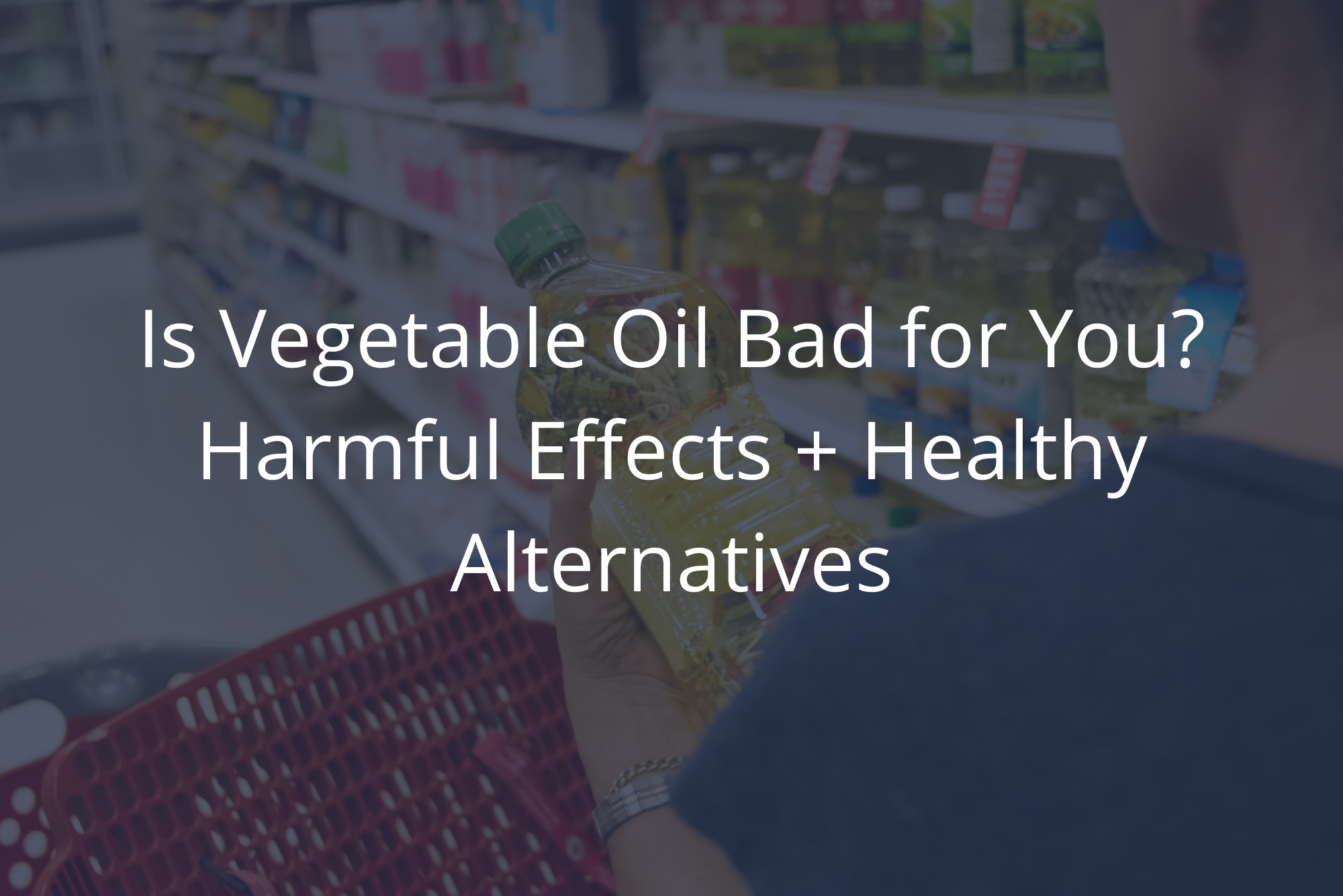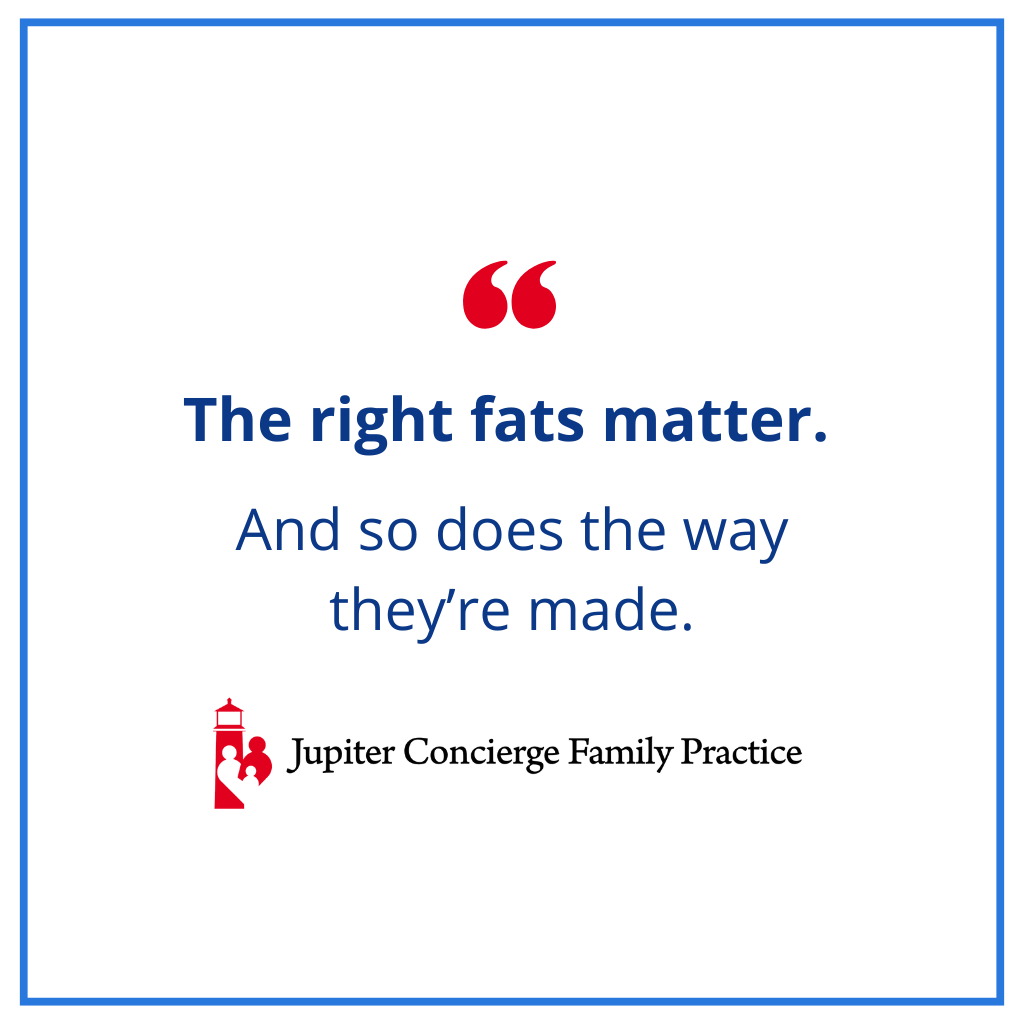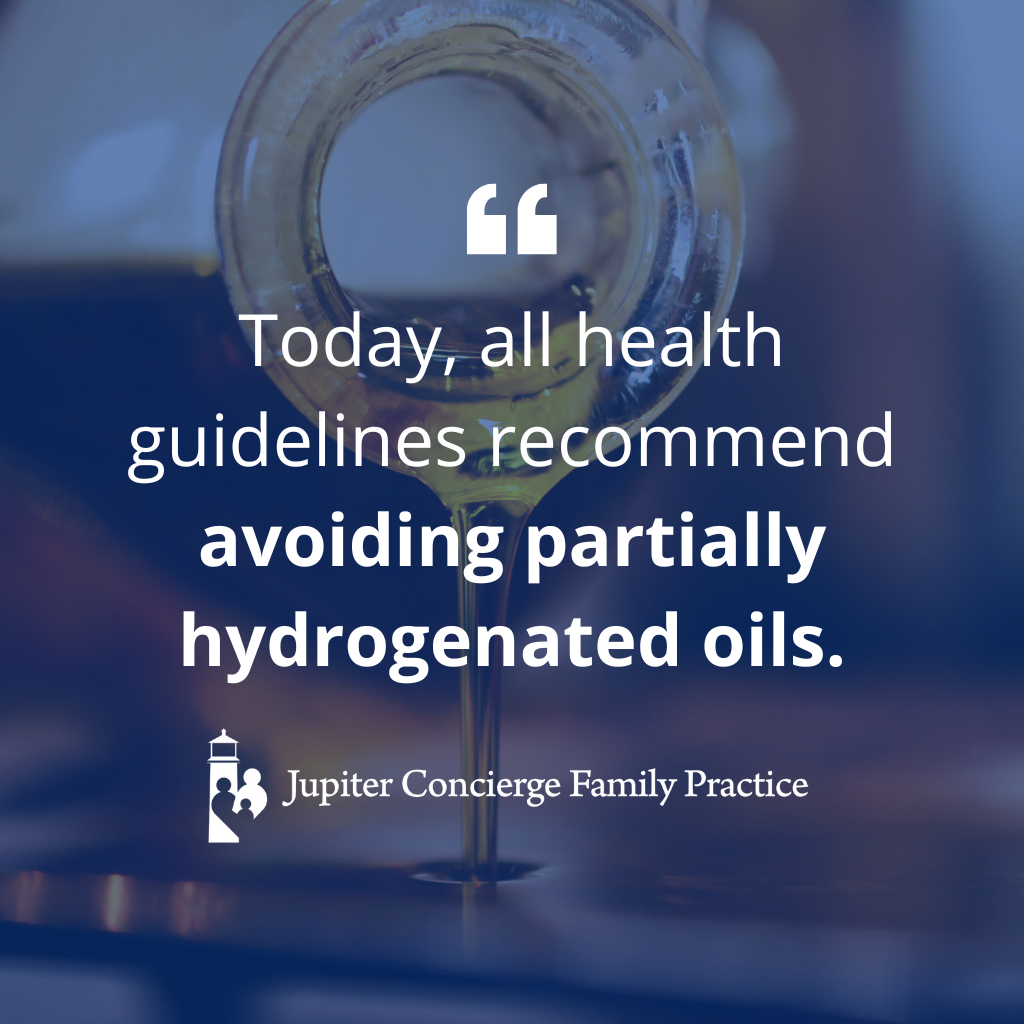
When people consult me about nutrition, the subject of dietary fat comes up fairly often. One of the biggest questions I hear these days is this:
Is vegetable oil bad for you?
The answer is yes… and no.
Yes, highly processed seed oils are absolutely bad for you. But some oils derived from vegetables are actually healthy. Like so much in the realm of health, we have to look beyond a simple, binary answer.
The confusion around dietary fats in the U.S. runs deep, and it’s no surprise. For decades, we’ve been told to avoid traditional fats like butter and lard in favor of newer, so-called heart-healthy vegetable oils.
But we’ve gotten it backward — and we’ve been paying the price with our health.
I’d like to talk about the harmful effects of vegetable oils, how we ended up here, and what we can change to support our health.
If Vegetable Oil Is Bad for You, Why Do We Eat It?
To dig into this question, we need to go back about 100 years.
Around 1900, brothers-in-law Procter & Gamble were searching for a cheaper raw material for soap and candle making than the typical lard or tallow. Cottonseed oil — a waste product from the cotton farming industry — presented such an exciting and successful alternative that they began looking for additional ways to use this inexpensive resource.
At the same time, a German scientist shared with them his newly invented process: hydrogenation. To their delight, Procter and Gamble found that simply adding a few hydrogen atoms to an oil’s existing fatty acid structure changed it from a liquid to a solid resembling lard.
In 1911, Procter & Gamble introduced this novel product to the world; today, you know it as Crisco. A cookbook and strong marketing campaign followed, framing P&G’s vegetable-based product as a sophisticated and heart-healthy alternative to animal fats, successfully infiltrating American homes and industry.
These health claims didn’t come from science, however; they came from marketing. And for decades following, “good wives and mothers” believed cooking with Crisco was best for their families.
Interestingly, Procter & Gamble eventually invested in the struggling American Heart Association. This financial support helped the organization rise in influence, but with a glaring conflict of interest. For generations now, the AHA has touted the benefits of replacing traditional cooking fats with processed oils, though they have shifted the specifics in recent years.
To be fair, the harmful effects of vegetable oils weren’t well-known early on. But they are today. Unfortunately, the marketing for vegetable oils has proven much more effective than the scientific evidence against them.
What’s Wrong With Vegetable Oil: Side Effects of Processing
By the 1990s, scientists recognized the unexpected rise in cardiovascular disease alongside the consumption of partially hydrogenated vegetable oils. New studies took place, revealing that trans fats produced via the hydrogenation process actually increased risk for heart disease.
Today, all health guidelines recommend avoiding partially hydrogenated oils for this reason. Yet the overall question remains: Is vegetable oil bad for you (if it doesn’t contain trans fats)?
Despite the introduction of new oil sources and processing methods, the core issue with processed vegetable oils remains: processing itself is a huge problem.
Today, most of the cooking oils on store shelves are seed oils. To extract fat from low-oil seed sources like soybean, canola, and corn, manufacturers use high-heat, high-pressure, chemical-heavy processes. What’s left is a thick, rancid-smelling, unappealing sludge stripped of all beneficial nutrients. To make it look and taste appealing, it goes through further chemical treatments. By the time it hits the shelves, it’s clear, golden, and odorless — but toxic.
And that’s before you cook with it.
When you heat these oils for cooking, especially for frying, they oxidize. In other words, they interact with oxygen in a way that changes their chemical structure. Oxidized oils are highly inflammatory, contributing to chronic disease processes from heart disease to cancer.
One of the biggest problems is oxidized LDL cholesterol. On its own, LDL isn’t necessarily bad. But when it oxidizes, it becomes sticky, damaging artery walls, promoting plaque buildup, and contributing to heart disease.
Further, many chemicals used in processing, such as hexane, are harmful to human health and can’t be 100% removed from the final product. Vegetable oils also typically contain an overwhelming ratio of omega-6 to omega-3 fatty acids. Though not inherently bad, omega-6s ramp up inflammation in the body if not balanced by an appropriate intake of omega-3s.
So, despite alternatives to hydrogenation, highly processed vegetable oils are still bad for you. Beyond inflammation, further vegetable oil side effects include disrupted metabolic function, weight gain, insulin resistance, and impaired brain function.
Harmful Vegetable Oils Are Everywhere
One reason it’s so difficult to avoid the harmful effects of vegetable oils is that they hide everywhere.
The inexpensive, long-lasting nature of soybean, canola, corn, and sunflower oils makes them cost-effective resources for manufacturers and restaurants alike. In fact, highly processed vegetable oils now make up about 10% of total caloric intake in the U.S. because of their prevalence in processed convenience foods.
Even those who eat a relatively healthy diet still consume about 30% of their calories from processed foods. From salad dressings to granola bars to crackers to frozen meals, just check the label. Odds are, you’ll find vegetable oil in there.
And don’t assume restaurants use high-quality fats. Unless they’re explicitly telling you otherwise, most are cooking with cheap, industrially processed vegetable oils.
Healthy Vegetable Oils and Cooking Fats
Now for the balancing element: Not all vegetable oils are bad for you.
You might have heard about the health benefits of olive oil or seen avocado oil appearing on grocery store shelves. These fat-rich sources don’t require high-heat, chemical-laden methods to extract their oil content. Instead, simple “cold pressing” preserves their nutritional integrity and produces a much safer form of oil.
That said, these healthier vegetable oils can still oxidize and lose nutrients in high-heat environments, so consume them raw or with lower heat when possible.
Other fats we’ve been told are bad, like butter, are actually considered neutral or even beneficial when sourced and used correctly. For example, grass-fed butter contains more beneficial nutrients, like carotenoids and omega-3s, than more processed or grain-fed versions, which is why Kerrygold butter is a staple in my kitchen.
My go-to cooking fats include:
- Extra virgin olive oil: Best used raw or for low-heat cooking.
- Avocado oil: Higher smoke point than olive oil, better for higher-heat cooking.
- Flaxseed, walnut, hempseed oil: Best for salad dressings or drizzling, not for cooking.
- Ghee (clarified butter): Good for high temperatures.
- Grass-fed butter: Delivers excellent nutrients at low temperatures.
Look for cold-pressed oils to avoid the harmful effects of vegetable oils processed with high heat and chemicals.
Margarine need never make an appearance in your kitchen. Though marketed as a healthy butter substitute, it’s one of the worst things you can put in your body.
Final Thoughts: Is Vegetable Oil Bad for You?
Your health depends heavily on what you eat. So, when it comes to fat, it’s time to get the facts straight.
You need fat to live. It’s an essential nutrient for many bodily functions, such as forming cell membranes and facilitating cell communication, brain function, and hormone production.
But the right fats matter. And so does the way they’re made.
The harmful effects of highly processed vegetable oils — from inflammation to heart disease to insulin resistance — are well-documented. These substances are not food. They are industrial byproducts better suited to lubricating machine parts than human bodies.
So, is vegetable oil bad for you? If we’re talking about processed seed oils like canola, soybean, or generic “vegetable oil,” then yes, vegetable oil is bad for you.
On the other hand, less-processed fats from quality sources, like avocado oil, extra virgin olive oil, and grass-fed butter, can be part of a nourishing, disease-preventing diet.
For more guidance on healthy vs. unhealthy fats, I recommend two excellent books:
- “Fats That Heal, Fats That Kill” by Udo Erasmus
- “Dark Calories” by Dr. Catherine Shanahan
I’ve found these volumes offer excellent insights into the harmful effects of highly processed vegetable oils as well as how to choose and use fats that benefit your health.


Dr. David Rosenberg
Dr. Rosenberg is a board-certified Family Physician. He received his medical degree from the University of Miami in 1988 and completed his residency in Family Medicine at The Washington Hospital in Washington, Pennsylvania in 1991. After practicing Emergency Medicine at Palm Beach Gardens Medical Center for two years, he started private practice in Jupiter, in 1993. He is an avid baseball fan and Beatles fanatic, since he was 8 years old. He has been married to his wife, Mary, since 1985 and has three grown children.
David completed additional studies at Mercer University, Macon, Georgia and obtained a BS in Chemistry in 1983.
“My interests include tennis, snow skiing, Pilates and self-development.”

